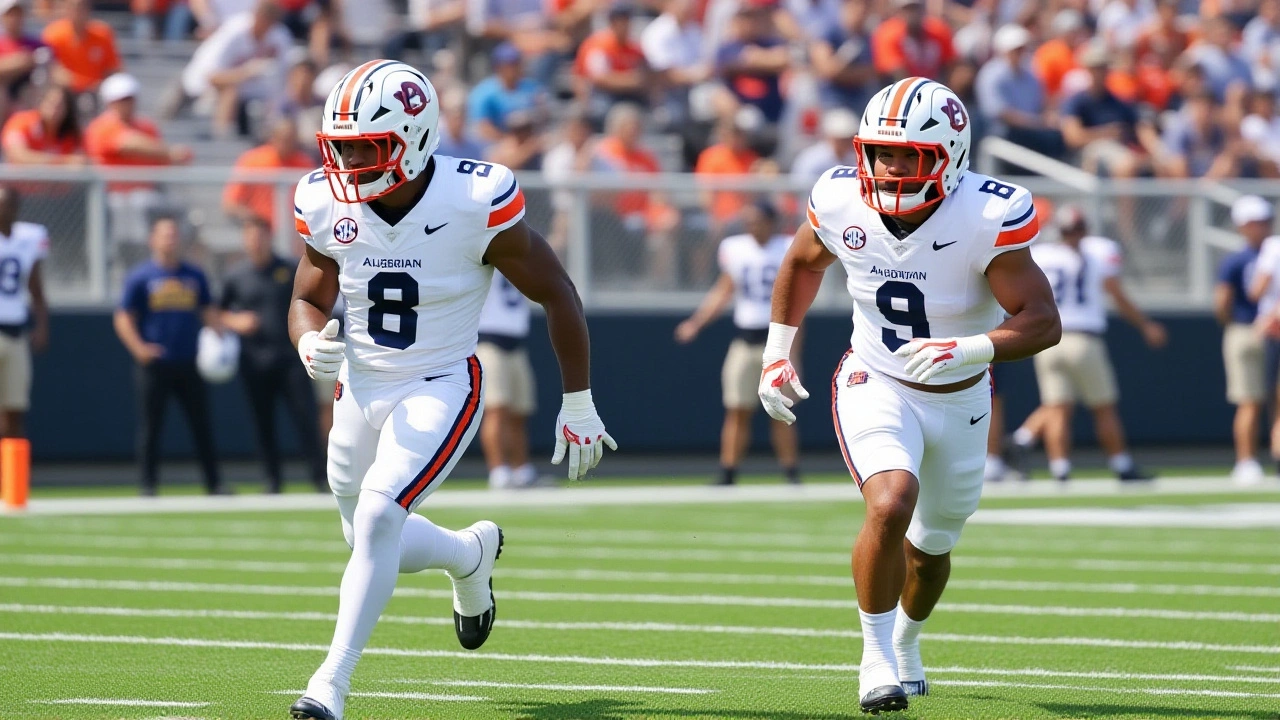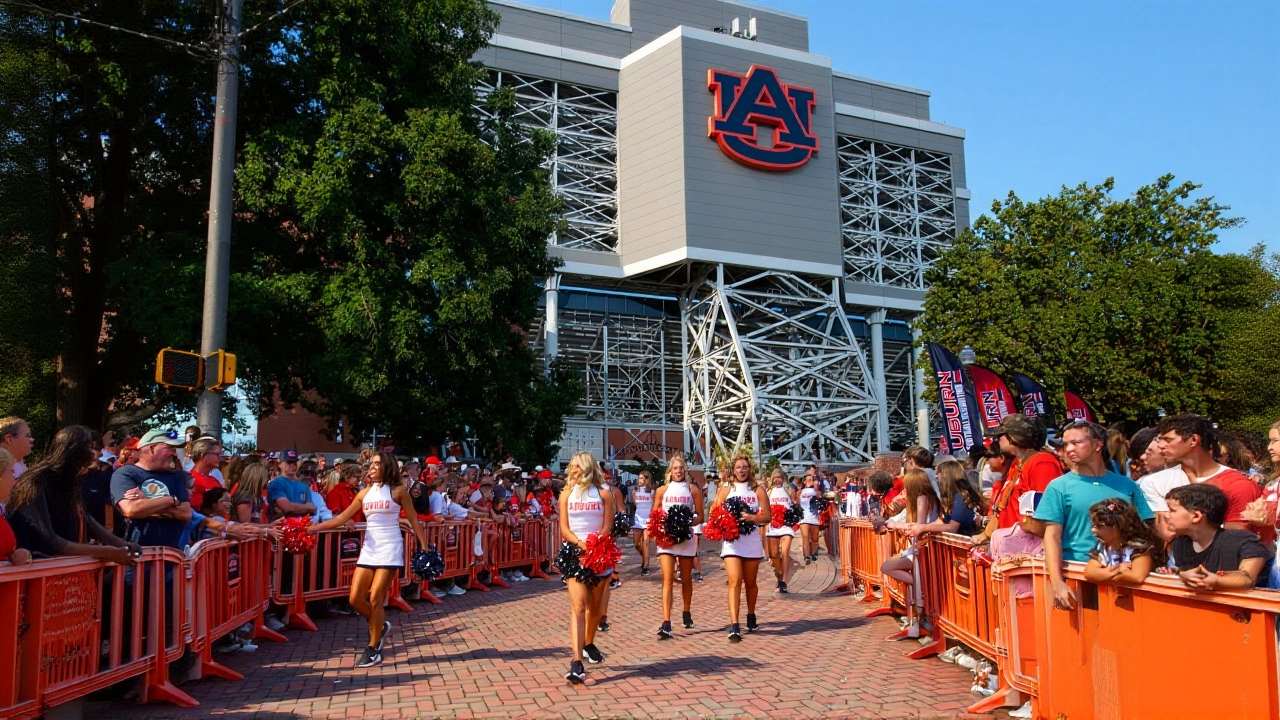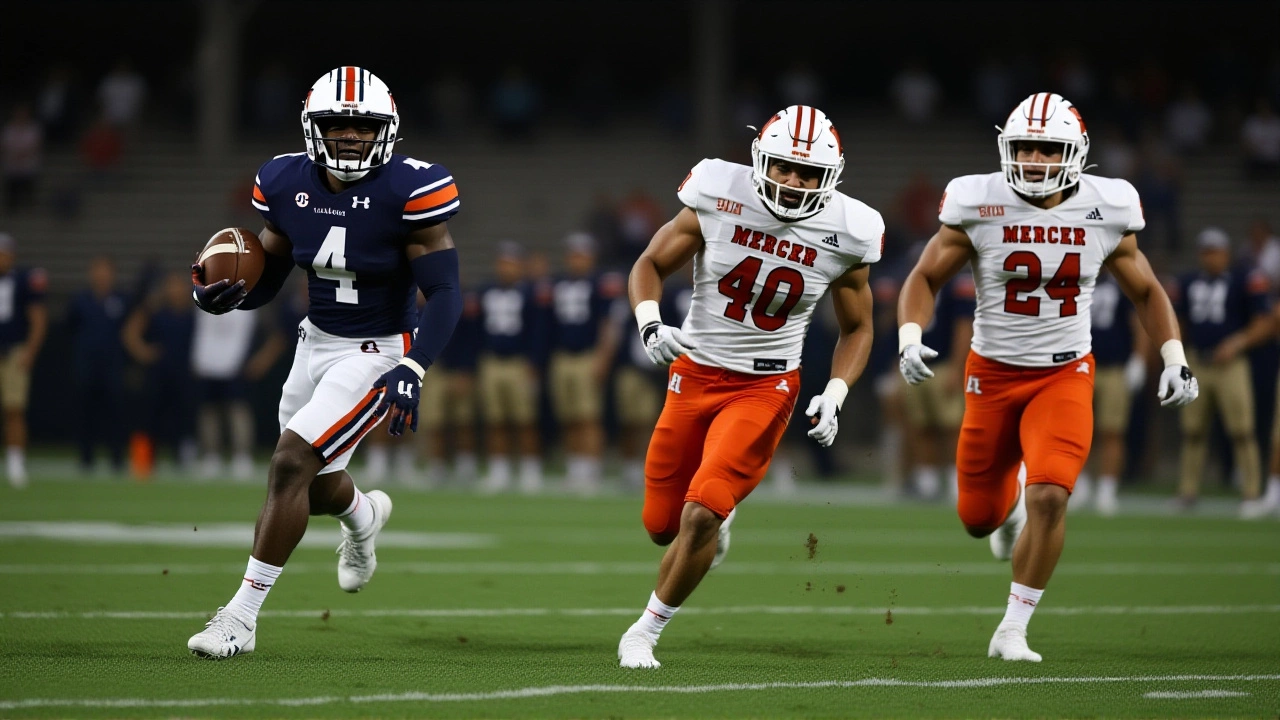When Auburn University agreed to pay Mercer University $475,000 to show up at Jordan Hare Stadium on November 22, 2025, they weren’t just buying a win—they were buying certainty. In a world where college football schedules are increasingly shaped by money, not tradition, this contract is a quiet reminder of how the game really works beneath the roar of the crowd. The payment, confirmed by both FBSchedules.com and the Montgomery Advertiser through Alabama’s open records law, isn’t unusual—but it’s still staggering when you consider Mercer’s roster size, budget, and the fact that they’ve never beaten Auburn in 13 tries.
The Money Behind the Matchup
For Mercer University, a mid-sized private school in Macon, Georgia competing in the Football Championship Subdivision (FCS), $475,000 is more than a paycheck. It’s a lifeline. Their athletic budget for 2024 was roughly $18 million; this single game guarantee accounts for over 2.5% of that. That’s enough to fund scholarships, upgrade locker room equipment, or even pay for a full season of travel for their entire program. Meanwhile, Auburn University—a powerhouse in the Southeastern Conference (SEC)—is spending less than 0.5% of its $100+ million athletic budget on this game. The return? A guaranteed win, a packed stadium, and a smooth slot on the calendar.
It’s a system that’s been in place for decades. FCS teams regularly take six-figure guarantees to play FBS schools. But what makes this one notable is the timing. Auburn’s entire 2025 home schedule is sold out. All 75,000+ season tickets are locked in. That means the Mercer game isn’t just a filler—it’s a revenue engine. Ticket prices for other home games range from $30 to $45, and with the stadium holding 88,043 fans, even a modest crowd of 70,000 could generate over $2 million in ticket sales alone. The $475,000 guarantee is a small price to pay for that kind of certainty.
A History of Dominance
The rivalry? It doesn’t exist—because there’s no competition. Since their first meeting in 1896, the Auburn Tigers have never lost to Merer Bears. The most recent matchup, in 2022, ended 42-16. That’s not a close game—it’s a statement. Mercer’s 2024 season was actually impressive: 9-4 overall, 6-2 in the Southern Conference, and a trip to the FCS playoffs where they were shut out 41-0 by eventual national champion South Dakota State University. But none of that matters on November 22, 2025. The scoreboard won’t reflect their effort. It’ll reflect Auburn’s dominance.
And yet, for Mercer, this isn’t a humiliation. It’s an opportunity. A trip to Auburn means national exposure. A chance for their players to be seen by NFL scouts who might not otherwise attend an FCS game in Macon. It’s a recruiting tool. A way to show their students: You’re playing in front of 80,000 people, on a stage few of your peers ever will.

The Bigger Picture: Scheduling in the Age of Money
Auburn’s 2025 non-conference slate is now complete: opening at McLane Stadium against Baylor on August 30, then home games against Ball State and South Alabama. All of them are winnable. All of them are profitable. And all of them are carefully chosen to maximize revenue, minimize risk, and maintain a strong strength-of-schedule for NCAA rankings.
Meanwhile, Mercer’s schedule is a balancing act. The Auburn game is one of only two non-conference road contests this season—the other is at Princeton University on October 11. That’s two trips to major markets, two chances to be seen, two paychecks to keep their program running. They’re not trying to compete with Auburn. They’re trying to survive—and thrive—within the system.
What Happens When the Lights Come On?
Here’s the odd part: a YouTube video description from ESPN College Football already claims Auburn won 62-17, with freshman QB Deuce Knight rushing for four touchdowns. But the game hasn’t been played. That video doesn’t exist. The stats are fiction. And yet, it’s already out there. That’s how predictable this outcome is. We don’t need to wait for November 2025 to know who wins. We already know. The only question left is: how many points will Mercer score? And will they even get the ball in the fourth quarter?
For Auburn fans, it’s a harmless novelty. For Mercer players, it’s the biggest game of their lives. And for college football as a whole? It’s a system that works—until it doesn’t. The gap between FBS and FCS keeps widening. The money keeps flowing upward. And the teams that can’t afford to lose… keep losing.

What’s Next?
By next spring, Auburn will likely announce ticket pricing for the Mercer game. It’ll probably be $35 for the upper deck, $45 for lower. And it’ll sell out—again. Meanwhile, Mercer’s athletic director will be back in his office, budget spreadsheet open, calculating how many new uniforms that $475,000 can buy. The game might not matter in the standings. But for one team, it matters more than any trophy ever could.
Frequently Asked Questions
Why does Auburn pay Mercer so much to play a game they’re expected to win?
Auburn pays $475,000 because FCS schools like Mercer can’t afford to travel and compete without guaranteed payments. For Auburn, it’s a low-risk way to fill their schedule with a guaranteed win while generating millions in ticket and merchandise sales. The money helps Mercer fund scholarships and travel, and Auburn gets a full stadium without scheduling a tougher opponent.
Is this payment unusual for FBS vs. FCS matchups?
No—it’s standard. FBS teams typically pay FCS opponents between $300,000 and $700,000 for home games. Auburn’s $475,000 is right in the middle. Schools like Alabama, Georgia, and LSU pay similar amounts. The difference is that Auburn’s stadium is nearly always sold out, making the financial return even higher for them.
How does this affect Mercer’s season?
For Mercer, the Auburn game is a major revenue source and exposure opportunity. It’s one of only two non-conference road games in 2025, the other being at Princeton. The paycheck helps fund their entire athletic department, and playing in front of 80,000 fans boosts recruiting and national visibility—even if they lose by 30+ points.
Why is the game scheduled so late in the season?
Auburn schedules FCS opponents late to avoid injury risks to key players during crucial SEC games. November is when conference titles are decided, and playing a weaker team late minimizes distractions. It also allows Auburn to use the game as a tune-up before bowl season, with fans still engaged and tickets already sold.
What’s the historical significance of this series?
Auburn leads the all-time series 13-0, dating back to 1896. The last meeting was in 2022, a 42-16 win for Auburn. While Mercer has improved—making the FCS playoffs in 2024—the gap in resources, talent, and exposure remains enormous. This will be the 14th meeting, and history suggests it won’t change the outcome.
Are tickets still available for the 2025 game?
No. All single-game tickets for Auburn’s 2025 home schedule, including the Mercer game, are sold out. Season tickets have been sold out for 18 straight years. The only way to get in is through the secondary market or group ticket packages through the Auburn Ticket Office or Eventive Sports.
